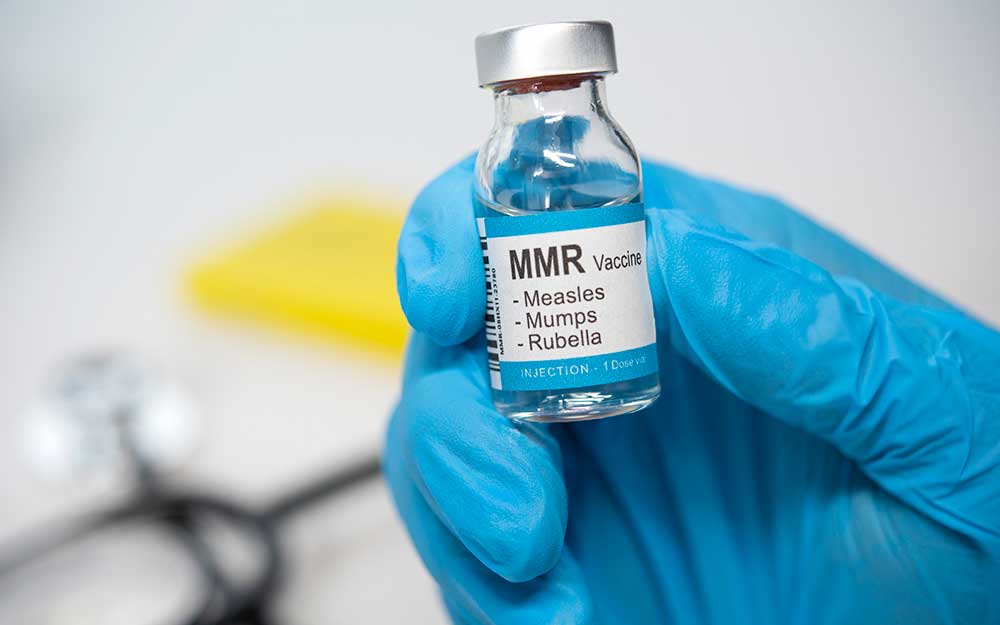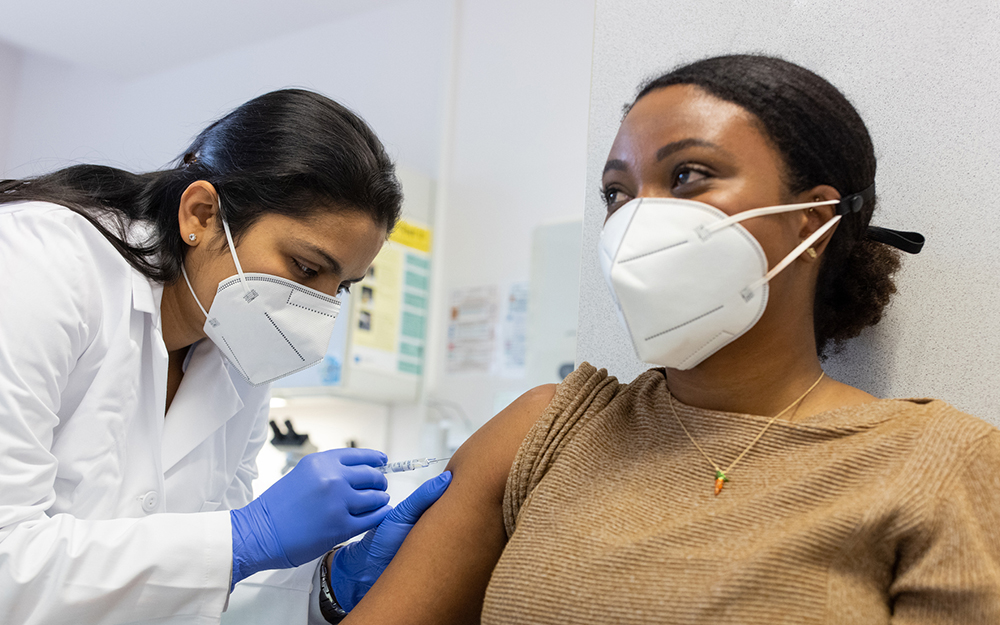Do You Need a Measles Booster?
Date
May 1, 2025

Date
May 1, 2025
Credits
Medical providers featured in this article

In Brief
{{cta-block}}
Once considered eradicated in the United States, measles is back—and spreading. As of mid-April, health authorities confirmed more than 700 cases across 25 states, according to the Centers for Disease Control and Prevention (CDC). That’s already more than double the number of cases reported in all of 2024.
Even adults, once considered immune, are falling ill.
"Measles is still one of the most dangerous infectious diseases, in part because it spreads so easily through the air and can linger in a room for up to two hours after an infected person has left," said Jillian Oft, MD, an infectious disease specialist at Cedars-Sinai. "The best protection against measles is vaccination, but unfortunately, we’re seeing a steady uptick in vaccine hesitancy."
To help you understand the risks and what steps you need to take, we asked our infectious disease experts—Oft and Isabelle Soh, MD, MPH—to answer your most pressing questions about waning immunity.
{{providers}}
"Measles is still one of the most dangerous infectious diseases, in part because it spreads so easily through the air and can linger in a room for up to two hours after an infected person has left. The best protection against measles is vaccination, but unfortunately, we’re seeing a steady uptick in vaccine hesitancy."
How can I tell if I’m immune to measles?
Most adults are immune to measles because they were vaccinated or they had the disease in the past or were exposed to it.
The MMR vaccine—which protects against measles, mumps and rubella—is highly effective. One dose provides about 93% protection, and a second dose bumps that up to 97%. Once you’ve had two doses, you’re likely protected for life.
But there is an exception:
- If you were born after 1957 and before 1968, you may have received an older, less effective version of the vaccine.
- If you’re unsure which version of the shot you received, talk to your doctor about whether a booster makes sense for you.
What if I’m not sure of my vaccination status?
If you’re not sure whether—or when—you were vaccinated for measles or you can’t find records that confirm your vaccination status, talk to your doctor.
A blood test called a titer can check for antibodies to help determine if you’re immune. That said, titer tests aren’t always reliable, so for most people, experts recommend skipping the test and simply getting another dose.
A titer test may be helpful if you:
- Work in healthcare
- Have a weakened immune system
- Are frequently around high-risk groups like unvaccinated children
How do I know if I need a booster shot?
If you’ve had two doses of the MMR vaccine, you’re considered fully vaccinated and don’t need a booster.
But if you were vaccinated between 1957 and 1968, it’s a good idea to get another dose—just to be safe. Even if you’re already immune, another dose won’t hurt you.
People who work in a healthcare setting or have regular contact with high-risk groups should also consider getting a booster.
What if I still get measles?
Even if you take every precaution, there’s still a chance you’ll get measles. According to the CDC, an estimated 3% of people who are fully vaccinated with two doses of the MMR vaccine will get measles if they’re exposed to the virus.
The good news: Vaccinated individuals tend to have milder symptoms, and they’re less likely to spread the virus to others.
If you think you may have measles, don’t rush to the emergency room or your doctor’s office without calling ahead. Since measles is highly contagious, advance notice allows the staff to prepare for your arrival. When you arrive at the hospital or your doctor’s office, wear a mask and follow your provider’s instructions to ensure the safety of others.
What symptoms should I watch for?
The classic sign of measles is a rash that starts on the face and then spreads throughout the body, but people who are infected with measles are contagious for several days before the rash develops. Other symptoms include:
- Fever
- Cough
- Runny nose
- Red, watery eyes
- Body aches
Keep in mind: You can be contagious for four days before and after a measles rash appears—which is why early detection and prevention are critical.
"If you’re unsure about your measles immunity or vaccine status, check in with your healthcare provider," said Soh. "A quick conversation—or a simple shot—can protect you and the people around you from a very preventable disease."

.jpg)




